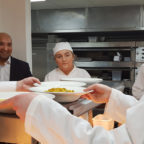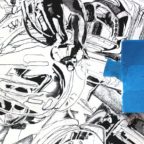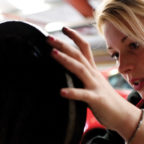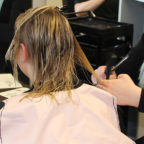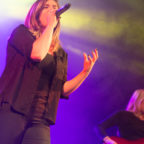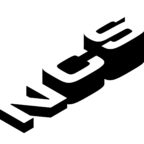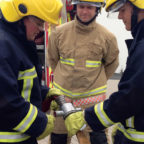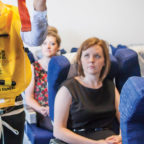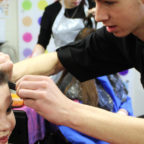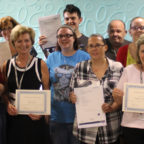 English Literature
English Literature
English Literature A Level
In Short
English Literature encourages students to develop interest in and enjoyment of English Literature, through reading widely, critically and independently, across centuries, genre and gender, and through experience of an extensive range of views about texts and how to read them. The subject assesses candidates through clear philosophy of reading and meaning, emphasis on the development of the informed, independent reader of literary texts through a course of wide and close reading; the centrality of the unprepared text as the test of the candidate’s ability to synthesise the key knowledge, understanding and skills of the course and linking, connecting and comparing a wide range of whole texts.
100% pass rate in A Level English Literature in 2020 – 1.2% above National Average
Entry Requirements
At least 5 GCSEs at Grade 9-5 including English Language and Maths
Course Content
English Literature is studied as either a 1 year AS or a linear 2 year A Level course. The AS leads to examination at the end of 1 year and the A Level examinations all take place at the end of the 2nd year. A Level students will take the AS examination as a practice test to prepare for their final exams a year later as both options are taught together, the first year of the A Level consisting of the same content as the AS. The texts studied for AS include 1 Shakespeare play, 2 prose texts, an anthology of poetry and unseen extracts of prose. The AS examination consists of 2 papers with 2 questions on each paper. A Level students will study the same texts as the AS but over the last year will also study 1 further prose text, 1 drama as well as the possibility of another Shakespeare play and collection of poetry from a single poet. There will also be a Non Examination Assessment unit within the 2nd year. This is essentially a piece of coursework of 2500 words comparing a set prose text with either another prose text or a collection of or one long narrative set of poetry or a drama text. The choice of 2nd text will either be chosen by the lecturer or the student. The final examination will consist of 2 papers. The 1st will focus on Shakespeare, a comparison of 2 poems and a comparison of a poem and a prose text (3 sections). The 2nd will consist of a choice of options but students will answer 3 questions covering poetry, drama and prose. The themes will be Love Through the Ages and Modern Times.
Your Tutors - David Watts & Bernie Egan
David Watts
BA (Hons) English Studies
I have been teaching at Weymouth College for 9 years. As an English lecturer, I currently teach across Language and Literature at AS and A Level as well as having delivered the A Level Creative Writing course for 4 years, and have taught Functional Skills previously after a 3-year role in learner support. I also presently teach on the GCSE Language and Access to Higher Education curriculums. This wide range of experience helps me to engage with learners and ensure that the skills and content they learn will best help them express their own views on texts across all literary and linguistic eras and areas. In the past I have examined for the AQA A Level Literature specification at both AS and A Level, and I am currently an examiner for the Edexcel GCSE Language paper. This gives me an important insight into the requirements for learners’ assessment and how they can improve their skills and achieve their goals.
Bernie Egan
I have taught English Language, Literature, Creative Writing and Film Studies A Levels at Weymouth College for the last 8 years. I have also been an Associate examiner for AQA and Assistant Examiner for the AEB. I continue to update my subject knowledge, training and CPD with the different exam Boards – AQA, Pearson and EDUQAS (WJEC) thus I can guide students to the best exam skills and strategies for improving their performance in Coursework and Exams. Having specialised in Sixth Form teaching since I began my career in 1995, after having gained a Master of Arts degree in Literature, I have honed my expertise in A Level teaching and Learning. Our English related courses are stimulating; covering relevant and broad topics such as Socio- and Psycho- linguistics, and we select contemporary literary and film choices making the content relevant for our students.
Progression
The study of English Literature will complement any future studies in the Arts, Humanities, Social Sciences and Law faculties at University. Careers in teaching, journalism, communications and media, in both the public and private sectors, are all achievable via an English pathway at further and higher education. In the past, A Level English students progressed onto courses such as English Literature, Creative Writing and Film Studies at Universities such as Bath Spa, Winchester, and Bristol.
Fees
If you are aged 16-18 as of 31 August on the year of enrolment – no course fee. If you are over 19 as of 31 August and enrolling on a full-time programme of study a tuition fee will be applicable in most cases. Bursary funds There are financial support arrangements for 16-18 year olds and hardship funds available for the over 19s. Please contact reception for details of costs and concessions on 01305 761100 or email igs@weymouth.ac.uk


